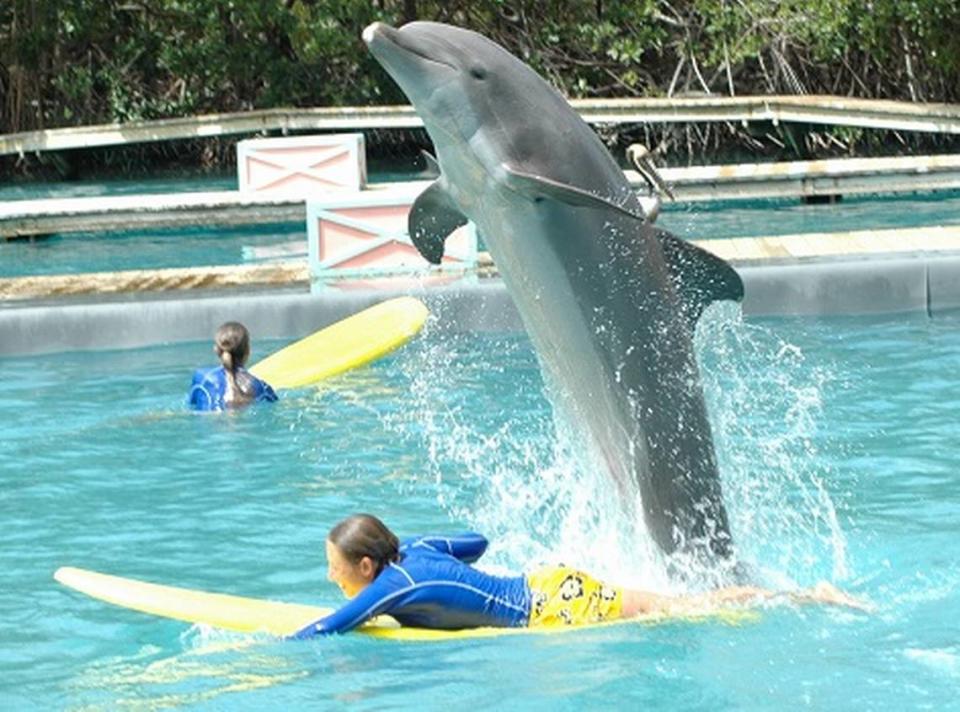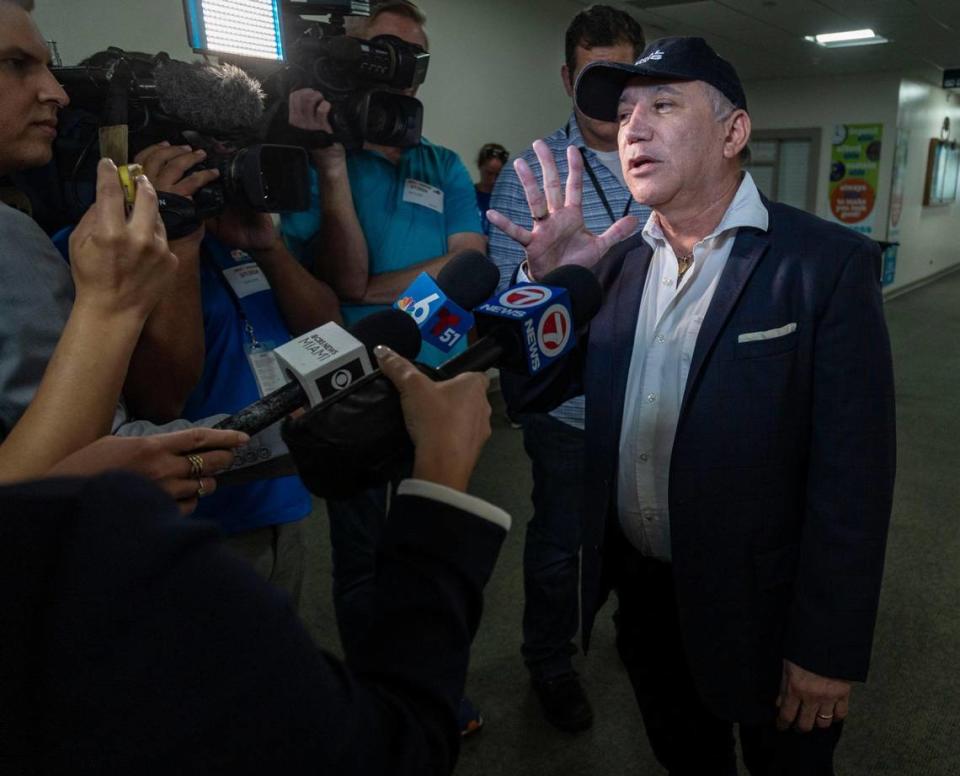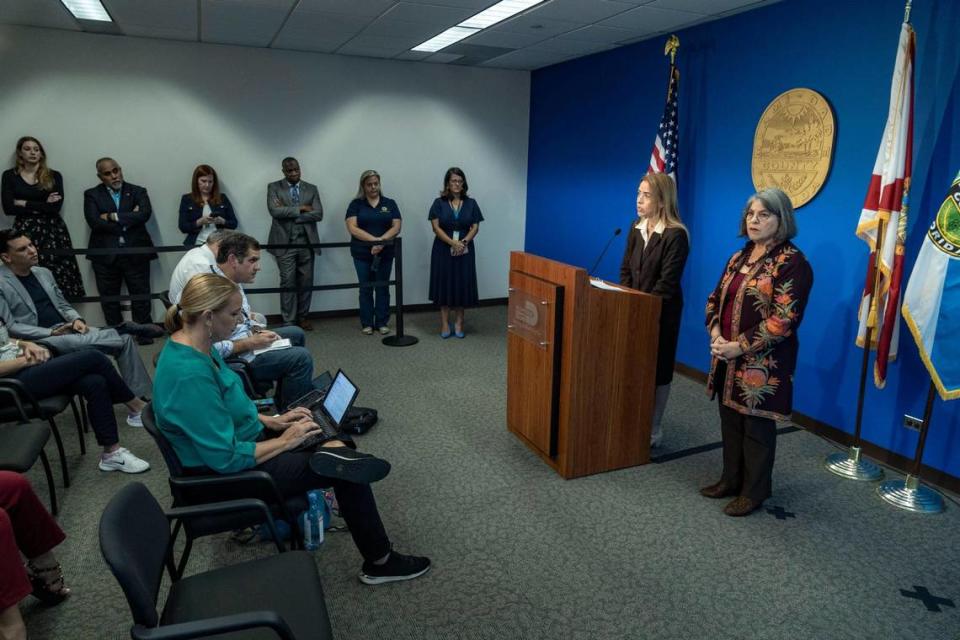If Miami-Dade evicts the Seaquarium, what happens to the dolphins and other animals?
- Oops!Something went wrong.Please try again later.
If Miami-Dade County ends up evicting the Miami Seaquarium, what happens to the attraction’s dolphins, seals, sea lions and manatees?
County officials and park managers declined to speculate on that question Thursday as Mayor Daniella Levine Cava launched a lease termination process that she said was demanded by poor animal care and shoddy conditions at the Seaquarium.
READ MORE: Miami-Dade County moves to evict Miami Seaquarium, gives park until April to vacate
Executives at the Seaquarium, which has operated under a county lease, deny the allegations and say they’re victims of a misguided attempt to cast the attraction in a negative light.

On Thursday morning, the mayor’s office sent a company executive a termination notice that gives the Seaquarium until April 21 to vacate the county waterfront land where it cares for about 100 birds and mammals, plus another 400 or so fish.
“To be clear, the animals belong to the company,” Levine Cava said at a press conference, responding to multiple questions about the fate of the Seaquarium animals if the park vacates the premises. “They do not belong to the county.”
Seaquarium executives came to County Hall during the mayor’s press conference to emphasize that they had no plans to comply with the county’s request and would fight eviction in court. If successful, the theme park could remain at the rented Miami waterfront location it has occupied since 1955.

The Dolphin Company, a Mexico-based conglomerate that runs marine-mammal attractions around the globe, took over the Seaquarium lease in Miami-Dade from the former operator in 2022.
Miami-Dade commissioners approved the switch after a deal negotiated by the Levine Cava administration that included provisions requiring that the park comply with federal animal-care rules. The county is citing those rules as one basis for a lease termination outlined in the letter Miami-Dade sent to the Dolphin Company on Thursday morning.

Should the dispute end in the Seaquarium vacating the 38-acre parcel, one likely scenario is that the Dolphin Company would simply pay to move its animals, including nearly 20 dolphins, to one or more of its existing parks.
The head of training for the Seaquarium, Andrew Scullion, cited the Dolphin Company’s resources in pushing back against recent complaints by federal inspectors that the park’s animal-care operation was short-staffed.
“While we might have only one veterinarian on site now, we have a whole corporation of support,” he said. “When we need it, they send it to us.”
Raquel Regalado, the Miami-Dade commissioner whose district includes the Seaquarium site, said the Dolphin Company’s status as an established operator was appealing in deciding to support the 2022 transfer.
“One of the reasons we agreed to this lease when it was brought to us is this is a company that has resources,” Regalado said in an afternoon press conference she and Levine Cava held at the Stephen P. Clark Center. “They do have resources they could move to other sites that they own that are accredited.”
Should the Seaquarium need local homes for its living assets, Miami-Dade owns Zoo Miami and the administration has tapped veterinary staff there for expertise in the Seaquarium dispute. Levine Cava declined to say if she explored any scenarios about animal relocation in deciding to terminate the Seaquarium lease.
“We want to be prepared for whatever may ensue. And we have experts available to us,” she said. “The animals, again, are not ours. We’re hopeful— and we’ll be monitoring to ensure — that they continue to have basic care and that, whatever happens next, they’re safe.”

